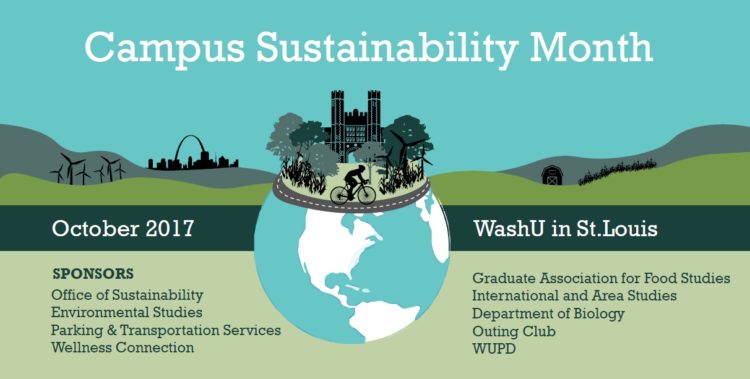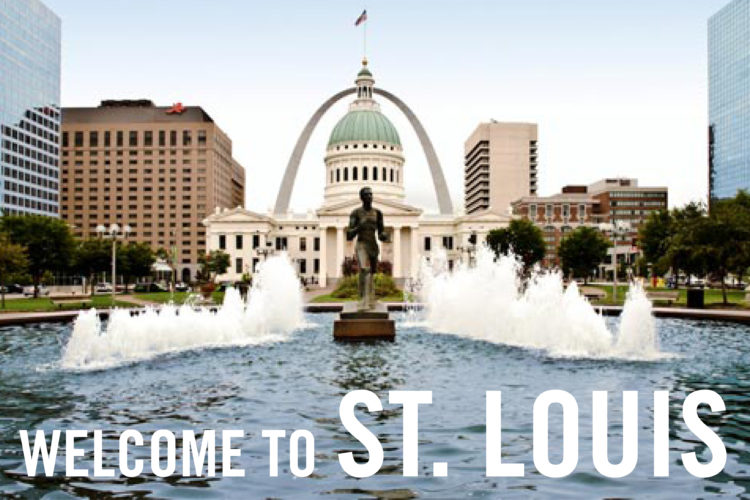Sustainability champions Nick Annin, Elise Fabbro and Nicola Salzman graduate this month from Washington University in St. Louis poised to fight the globe’s most pressing problem with a powerful tool: the free market.
Though these students support laws and treaties that protect the environment, they also recognize that markets can move faster. And, in this battle, every second counts.

Nick Annin plans to pursue a Masters in Finance at Olin after earning his undergrad degree. Majors: Environmental policy and writing in Arts & Sciences.
“There is a myth that the economy and the environment are inherently at odds,” said Annin, a senior in the environmental studies program in Arts & Sciences. “We know, in fact, the opposite is true. A healthy economy depends on a healthy environment.”
The three advocates share much in common, including an early admiration for former vice president Al Gore. Each said Gore’s 2006 documentary, “An Inconvenient Truth,” transformed climate change from a vague cause for concern into, for each of them, a call to action.
Annin remembers watching the film in fourth grade with his father Peter Annin, a renowned environmental journalist. Annin felt as if he might vomit.
“All my life, I had gone camping and the woods were my home,” said Annin, a native of Madison, Wis. “The idea that all of that was threatened was horrifying.”

Nicola Salzman Majors: Environmental policy in Arts & Sciences and leadership and strategic management in Olin Business School.
Salzman, also a senior in environmental studies in Arts & Sciences, was in high school in Boston when she read a book version of “An Inconvenient Truth.” She remembers looking at the adults around her thinking, “Wait? You knew about this? And you’re not doing everything you can to fix it?”
And Fabbro, a law student, remembers her Palo Alto, Calif., high school inviting Gore to deliver his “Inconvenient Truth” presentation live.
“I walked out of there changed,” Fabbro said. “Since then, the environment and our impact on it is what I think when I go to bed at night, and when I wake up in the morning.”
In 2013, they would all arrive at the same time at the Danforth Campus. Annin came to play football for Coach Larry Kindbom; Salzman liked the campus culture; and Fabbro transferred to the School of Law when an admissions officer serendipitously called the day she learned her current program was losing two environmental law experts.
Once here, they all applied to participate in the international climate negotiation seminar. They also each attended the global climate talks, known as the United Nations Framework Convention on Climate Change Conferences of the Parties (COP) as a delegate from Washington University.

Elise Fabbro Degrees: JD, School of Law and MBA, Olin Business School
It’s a unique opportunity, one that few universities extend to undergraduates, said Beth Martin, senior lecturer in environmental studies in Arts & Sciences. At the conferences, the students tracked specific articles of the agreement such as mitigation or finance, and attended negotiations and forums featuring climate leaders such as Gore and former United Nations secretary general Ban Ki-moon.
“They see how diplomacy works and how words matter,” said Martin, who teaches the international climate seminar and leads the Washington University observer delegation. “The students also meet people whose daily lives and homes are profoundly impacted by climate change. It is both an incredible educational and emotional experience.”
All three students consider the conference the capstone of their academic careers. “We participated in history,” said Fabbro, who attended COP 21 in 2015 in Paris with Annin.
“I asked myself over and over again, ‘How am I here?’” said Salzman, who attended COP 22 in Marrakesh in 2016. “It was an experience unlike one I could ever have in a classroom.”
Fabbro, Annin and Salzman left their respective conferences buoyed. The innovations of engineers, the research of scientists, the resolve of diplomats — the gains were real. And yet each returned, more convinced than ever, that global talks and international treaties can only take us so far. The private sector can — and must — play a pivotal role.
For a closer look at Washington University’s leading sustainability champions and their vision for world for a healthy environment and economy, link to their Class Acts profiles.













